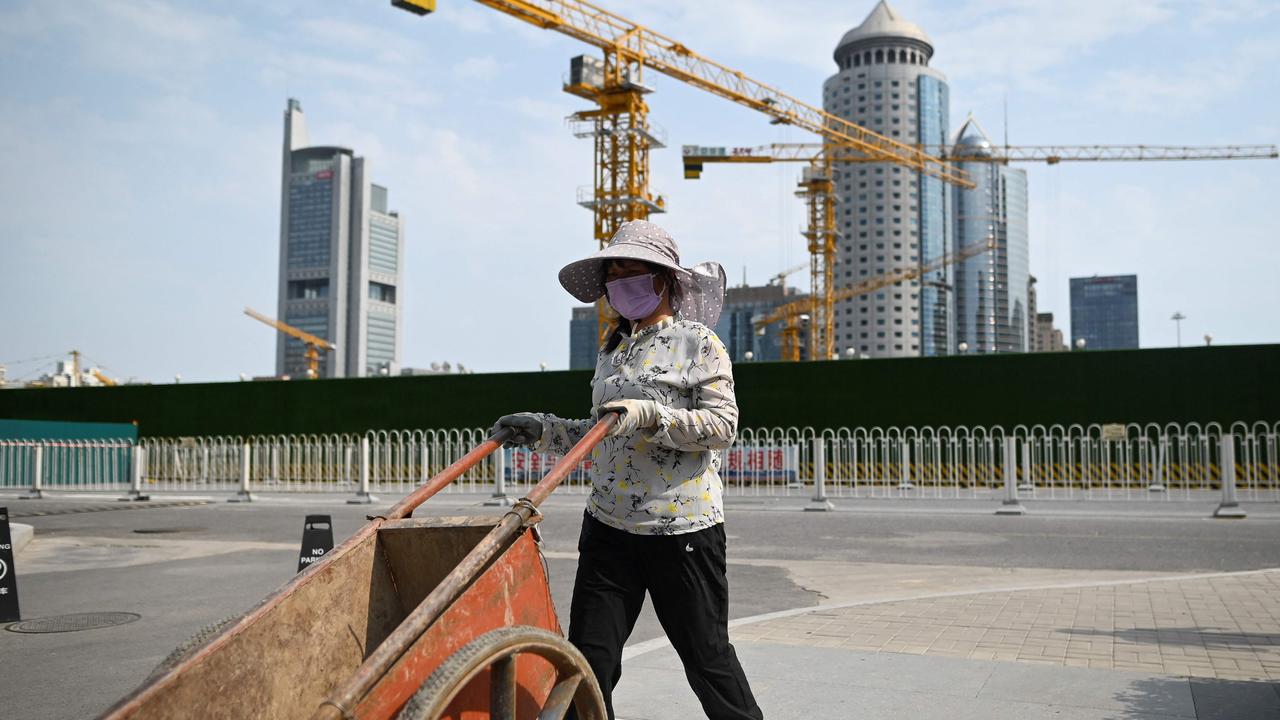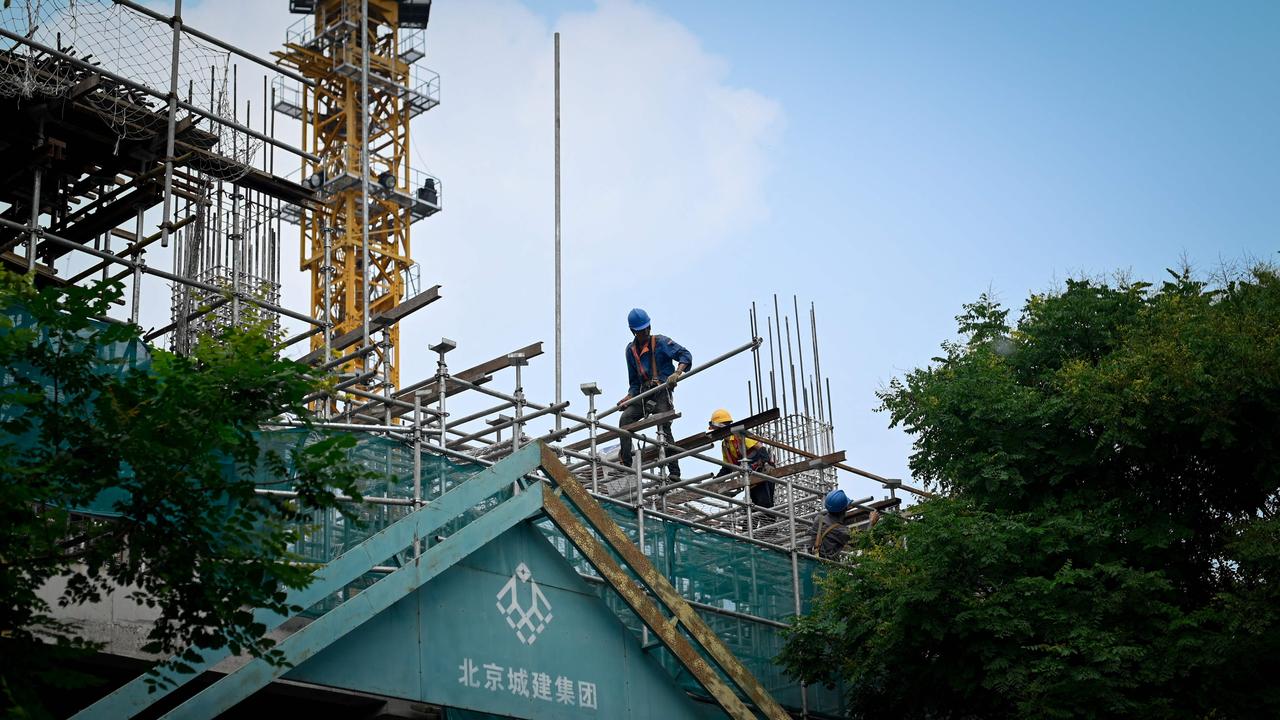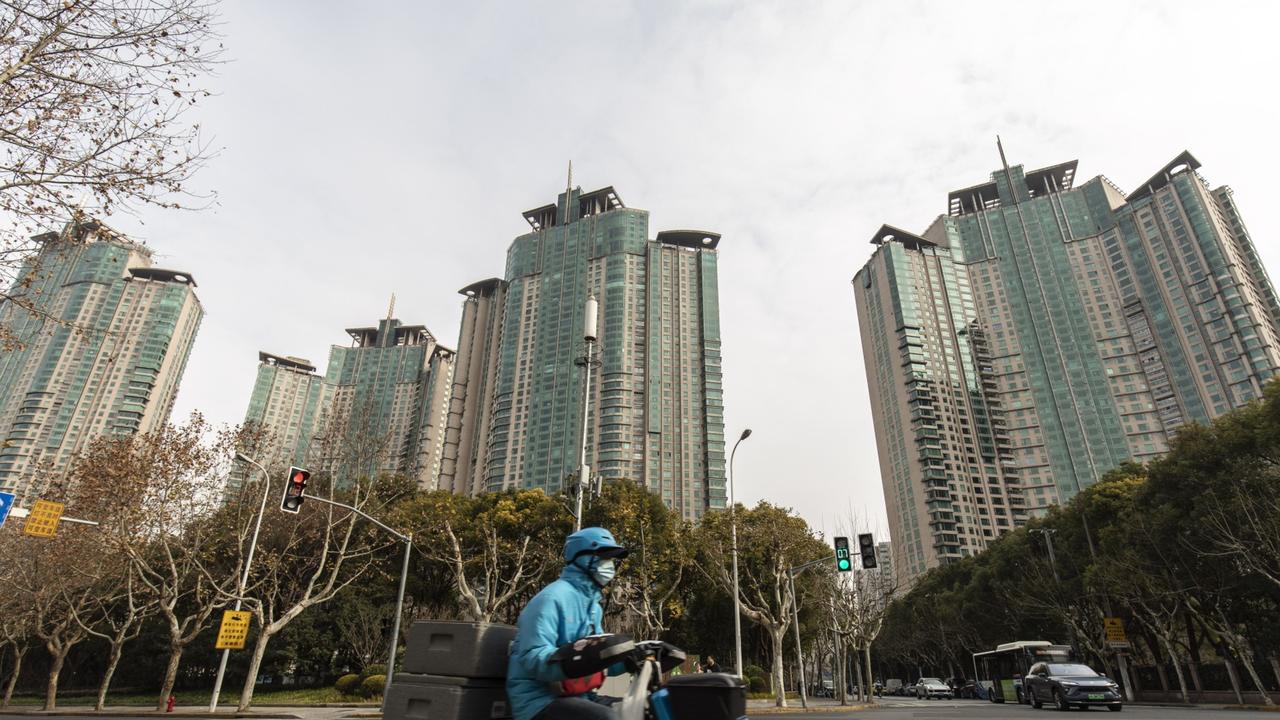China’s real estate crisis heightens as people refuse to pay mortgages
Their entire being depends on prosperity and winning but China faces a deep crisis as their property market teeters on the brink.
They’re paying for homes that haven’t been built. And nobody wants to live in them anyway. Now Chairman Xi Jinping is racing to silence angry homebuyers ahead of his inauguration as China’s eternal leader.
Xi Jinping Thought – the doctrine set to define the future of his nation – talks of common prosperity and win-win scenarios.
No one dares speak otherwise.
Which is why Communist Party controlled social media platforms are clamping down hard on unhappy homebuyers threatening to stop paying their mortgages.
A year after China’s major property developers began defaulting on billions of dollars worth of loans, the real estate crisis is escalating. ‘Mum and dad’ investors fear their money has vanished into unbuilt homes.
With good cause.

Only about 60 per cent of all apartments pre-sold between 2013 and 2020 have reportedly been completed. But their owners are still paying.
In little more than a week, what started as a small public protest in Henan province has spread to Hebei, Hunan, and Shaanxi provinces. And the hit-list of about 30 incomplete housing projects has exploded to 319.
Now Beijing is trying to slam the door shut on the protest movement. But the horse may have already bolted.
Communist Party authorities are worried the boycott will become a “trigger event” – sparking a chain reaction rippling through China and releasing long bottled-up tensions over a multitude of issues. This may have already begun.
China’s construction industry is set to join the boycott. Facing months’ worth of unpaid bills, tradies are threatening to down their tools and suppliers to close their warehouse doors.
And it all comes at a terribly inconvenient time for Chairman Xi.
The 20th Communist Party Congress will meet later this year. It’s an event where China will formally set aside the two-term limit placed on its leadership as a safeguard against authoritarianism.
It’s a spectacle Xi wants to rubberstamp his move to become chairman for life.
Pre-paid pain
China’s real estate market turned to the pre-pay model when a housing shortage resulted in buyers scrambling to secure a future home.
Since then, the model has persisted as the general public rushed toward property as a lucrative personal investment. After all – prices have been climbing for decades. And there’s no property tax in China.
The resulting real estate boom was enormous. Prospective investors were happy to hand over their cash for unbuilt homes, expecting significant returns.
Now about 20 per cent of all apartments in major Chinese cities are vacant. They have no tenants. And hundreds of massive new tower blocks are still being built.
Add to that a strained economy under severe Covid-19 restrictions and global supply chain difficulties, and the boom has gone bust.
The property sector is in real trouble. Home buyers aren’t happy to foot the bill upfront anymore. And with developers (and district Communist Party governments) reliant on cash advances, nobody knows where that cash will come from.
Home sales plummeted some 60 per cent in the year to May.
“At some point, it’s possible that the central government will take dramatic action, including de facto nationalisation of parts of the real estate industry,” argues Foreign Policy analyst James Palmer. “For one thing, Chinese President Xi Jinping’s natural reaction whenever there’s a problem is to give the government more control.”
Protesters have been careful to direct their anger at developers and lending institutions without mentioning equally culpable local Communist Party authorities. They know directly challenging the government can lead to a violent response.
But there’s no avoiding the indirect criticism of the Party’s economic policies. So, the central government in Beijing has moved to gag the entire crisis.
Everything is perfect
“China’s real estate firms are simply too big to fail,” says Palmer. “The wealth of the country’s urban middle class is invested in them. Property makes up roughly 30 per cent of Chinese GDP.”
The stakes are high. That’s why Beijing won’t allow it to be discussed.
Chinese Premier Li Keqiang addressed the growing economic headwinds in a public address at the weekend. But he did not mention the property market or the protests. Instead, he blamed “imported inflation” for the country’s woes.
A report carried by the state-controlled Xinhua News agency described the economic situation as “extremely rare”. “Concerted efforts must be made to consolidate the foundation of recovery in the third quarter and get the economy back on track as soon as possible,” he said. “Efforts will also go into expanding consumption with market-based and sustainable approaches, eliminating all obstacles to investment and stabilising foreign trade.”

China’s social and traditional media outlets are attempting to ensure that’s the only message people hear. After all, anything less would “undermine social stability” and bring down the wrath of Beijing.
Videos of protesters demonstrating are being deleted as fast as they are posted.
Social media posts mentioning mortgage boycotts are being blocked.
Key words relating to property developers and banks are being carefully filtered.
Even pictures of idle construction sites are being taken down.
Hundreds of contractors last week joined voices to warn they could no longer pay their own bills because of unpaid developer debts.
“We decided to stop paying all loans and arrears, and advise our peers to decline any requests to be paid on credit or commercial bills,” a letter from the group reads. “Evergrande should be held responsible for any consequence that follows because of the chain reaction of the supply-chain crisis.”
Reference to that letter has since been removed from Chinese media.
Overexposed
Beijing is urging local Communist Party authorities and financial institutions to find ways to keep unfinished projects afloat. After all, they represent the life savings of many ordinary citizens.
About 90 per cent of urban residents own property. Some 70 per cent of total household wealth is tied up in real estate.
That’s why regulators are reportedly considering formalising the mortgage boycott by allowing homeowners to delay payments on stalled housing projects.
But Bloomberg intelligence analyst Francis Chan warns that such official moratoriums could escalate boycotts. “They may eventually choose to default as they already started not paying anyway,” he says.
China cannot afford that to happen.

Its largest developer, Country Garden, has an annual revenue of $US100 billion ($A144 billion). But, like much of the rest of the industry, that is primarily based on debt.
In 2020, Chinese developers took out $US419 billion ($A607 billion) in domestic loans. As of June last year, its total debt exposure was about $US5.2 trillion ($A7.5 trillion).
Which is why much of China’s real estate industry depends on fresh deposits and ongoing presale mortgage payments for cash flow liquidity.
Sichuan Languang Development was the first to default when it missed a $US139 million ($A201 million) payment a year ago. Several more dominoes have fallen, including China Evergrande Group with $US300 billion ($A434 billion) in liabilities.
Earlier this month, Ronshine China Holdings became the 19th developer to default.
China’s Banking and Insurance Regulatory Commission (CBIRC) says national banks are inspecting unfinished projects and that “the scope of projects affected is relatively small”. It states one major commercial bank, ICBC, reports only 0.31 per cent of its mortgages are non-performing and that the “risks were controllable”.
“Banks will meet developers’ financing needs where it is reasonable,” CBIRC official Liu Zhongrui said at the weekend.
“Banks must work with local authorities to provide sufficient financial liquidity to facilitate the completion and handover of contracted property sales, based on market principles and compliance with the law.
“All the difficulties and problems will be properly solved.”
Jamie Seidel is a freelance writer | @JamieSeidel






